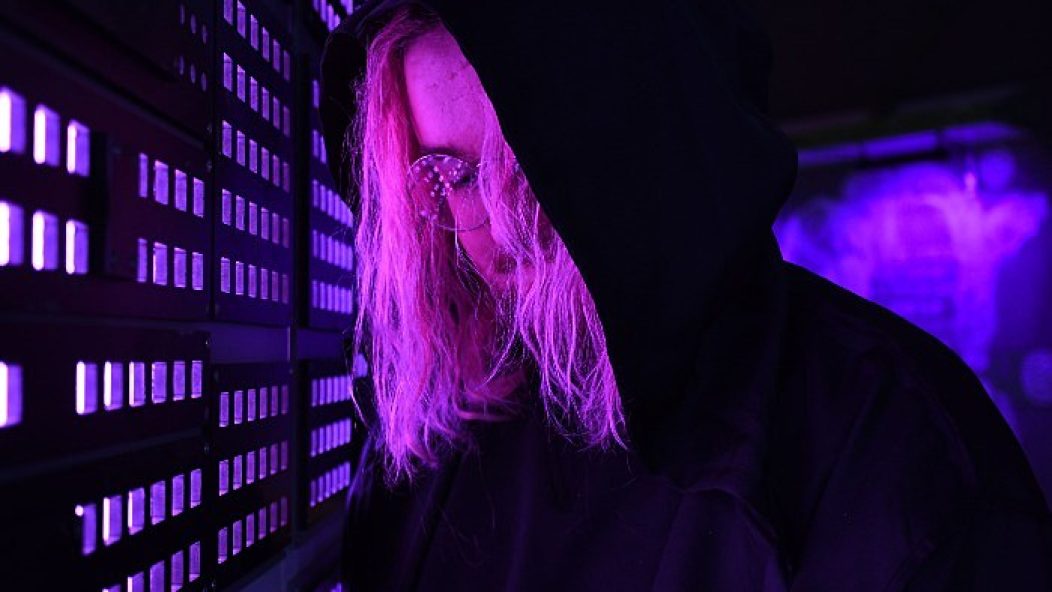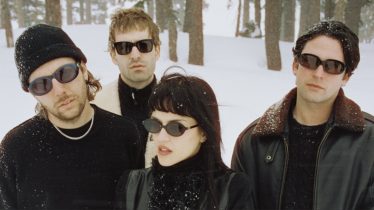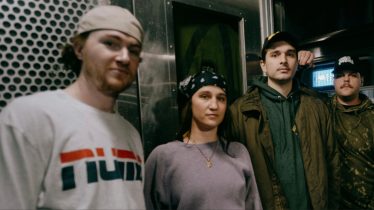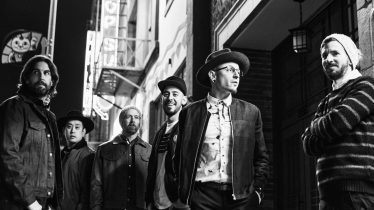
galen tipton uses her music to craft miniature universes of sound
Listen to anything by galen tipton and prepare to step inside a world unlike any other you’ve experienced before. The musician based in Columbus, Ohio, has learned how to meticulously craft alternate realities completely out of sound, immersing listeners into a feeling without having to use any words. As the creator of these mystifying mini universes, tipton writes her own rules—and isn’t afraid to break them when she needs to.
Some tracks sparkle with effervescence, like those on her latest release, march (norway spruce). Others explode with frenetic beats, like those on the chaotic Fake Meat. What binds them is the mind that carefully designed them all, sometimes taking years to perfect a project.
Read more: Lauren Servideo shares the inspiration behind her characters and humor
tipton takes the mundane moments of everyday life and turns them into a completely unique listening experience. Each track is the result of a scavenger hunt for sound, taking inspiration from animation (Dana Terrace’s The Owl House) to her friends (Giant Claw, Holly Waxwing and diana starshine) to advertisements on YouTube.
The freedom tipton finds in creating her outrageous music is evident, testing just how far she can go with each new release.
Your music is super unique. Where does your inspiration come from?
Honestly, it comes [from] a variety of different places, and it’s constantly shifting. The inspiration is my attention span. What I’m interested in and what captures my attention can be changing all the time, so it’s like a snapshot into what I’m currently interested in. Animation, film, podcasts… I feel like I’ve been getting a lot more inspiration from stuff outside of music lately.
How do you go about telling a story and conveying emotions through your music without using any words?
I guess I’m really inspired by how scenes in film that don’t have any dialogue, or if you’re playing an adventure video game or something that doesn’t have dialogue, sound in those instances has to really carry a feeling or a vibe or a story that is pretty open-ended, but you still have to be able to capture a feeling without being able to say anything. And then music, by extension, you don’t have that visual element. So just trying to figure out more ways to implement sounds to really create a setting. I just think about music in terms of building little environments.
Have you ever dabbled in creating music with lyrics?
Yeah, I have a pop project called recovery girl. I sing on all of that. It’s basically me doing hyperpop stuff. I try to focus more on the songwriting and lyric aspects for that first and production second, whereas other types of production, I focus more on the overall feeling. In the stuff that I make that’s not pop, I like having it as open-ended as possible, and I feel like words, if not used right, can really tie down something to a specific meaning. Whereas working with pop, I like to be as direct as possible. So I try to have those two different outlets.
Do you prefer one to the other?
Not necessarily. It’s really nice to be working on one and then feel burnt out on it and then have that other outlet to just be like, “Oh, I’m really tired of working on pop shit right now. I just want to do something weird.” And then having that immediate outlet. I have been focusing more on the recovery girl stuff at the moment just because it’s gotten relatively popular, and [I’m] just trying to ride that out while the waves still exist.
You have alternate personas that you can just dive into whenever the situation calls for it. I love that aspect of your music.
Yeah, it’s fun. I feel like it just makes things easier to have a set of rules for yourself in specific instances.
You use a lot of distorted sounds in your music. What does the process look like for you when you create the perfect sound?
I think it’s less of a creation and more of a finding. If I hear a sound in a YouTube ad or something like that, I’ll just pull that and put that into a project, then layer that with other things. I’m drawing a lot of different samples from all over the place and just collaging them together, sometimes on top of each other, and it’s all very much based on my personal preference and sounds that immediately come to my attention specifically. I don’t know if I want to say it’s like looking for things that would give me an ASMR feeling, but it’s definitely anything that immediately elicits a strong emotional reaction.
I have a field recorder that I carry around with me sometimes, [or I] record stuff on my phone. If I’m scrolling through YouTube or Facebook or Instagram and something pops up, I’ll figure out a way to record that. I used to go dig through old records and stuff and just pick stuff out based on the cover and then see if I could find any fun sounds in there. I’m just open to them coming from anywhere.
What does your music mean to you?
Basically, all of this is very much therapeutic for me. I’m doing these things to satiate my own interests, but also, I’m working through a lot of stuff while I’m doing it. I’m in weekly therapy right now, and that doesn’t totally feel like enough at the moment, so I use music to try to help work my way through things that I might not be able to with words.
I’ve noticed that you’re really outspoken about social justice on your social media. Do you think musicians are obligated to use their platform to promote social change and activism?
I don’t know if obligated is the right word, but I think all artwork and music is political, whether you’re thinking about it or not. I think more artists need to think about it from that angle. Take me, for example. [My music] doesn’t have anything overtly political about it, but it’s made by me, a queer person. I can’t separate that aspect from my life, so I can’t really separate that from my music either.
To me, everything is just not separate. Everything is very much interconnected. Whether you’re making art that is very specifically political or not, it’s still a political statement when you put it up. I honestly think a lot of artwork that is very explicitly political is very boring and not that effective. I don’t think it does a very good job of connecting with people, whereas—not saying that I’m doing it amazing or anything—but I’m very much connecting my work to my personal experience, and my personal experience is a political experience. Through that, I feel like it’s easier to make bolder, important statements without making them [obvious] sometimes.
FOR FANS OF: Gupi, Iglooghost, A. G. Cook
SONG RECOMMENDATION: “Courageous Grieving”
This interview appeared in issue 396, available here.







